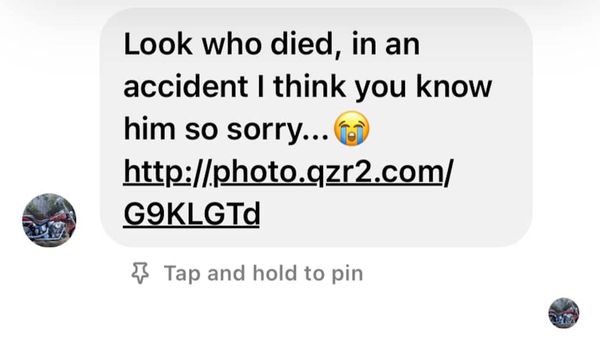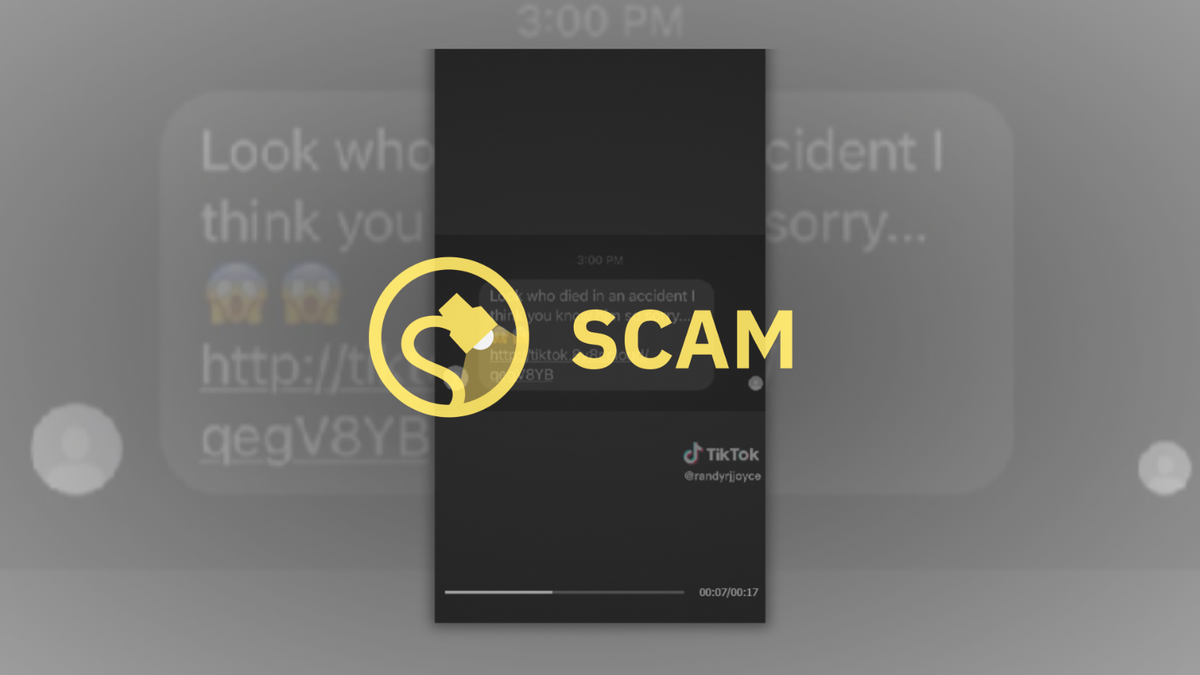Several social media users have reportedly received a scam message via Facebook's messaging application, Facebook Messenger, claiming that an unnamed individual whom the recipient apparently knows has died "in an accident" and a link supposedly has more information about the death.
The message is a phishing scam, according to DataProt, which tracks cybersecurity threats. If you receive this message, we recommend you delete the text without clicking the link.
According to screenshots posted by social media users, the messages read, "Look who died, in an accident I think you know him so sorry...[emoji]," with the link. No further details about the allegedly deceased person, as well as the purported accident, were included in the message.

While many screenshots documenting the message were posted on social media in March or April 2023, we found evidence of the message on platforms like , Reddit, Twitter, and TikTok prior to those months, as well. For example, we found one Twitter post from January 2023 and a TikTok post from October 2022 about the scam.
With a profile photograph accompanying message, the note may appear to be legitimately authored by a Facebook friend of the recipient, according to DataProt. But in reality, the message contains fake links operated by scammers who intend to take over the recipient's Facebook account or infect the person's device with malware.
After hacking a user's account, the scam operation would then send the message to the user's friends to see if their accounts could also be hacked via the same trick.
A Facebook Help Center webpage with tips to avoid scams states users should not open attachments in messages that look strange. Instead, the page says to send these messages either to phish@fb.com or through Facebook's reporting system.
If your Facebook account was hacked, the social media platform set up a webpage where you can secure your access.
In a guide by the Federal Trade Commission about social media scams, the agency encourages people to call the alleged authors of suspicious messages before acting on them to check if they actually sent them, or whether scammers were involved.

